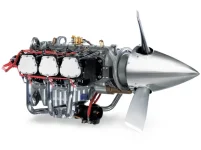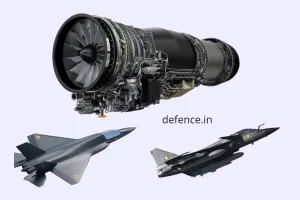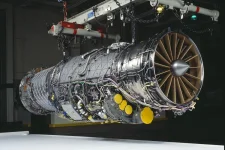- Views: 1K
- Replies: 9

The Indian Space Research Organisation (ISRO) is spearheading a transformative initiative in rocket propulsion, collaborating with Hindustan Aeronautics Limited (HAL) and the National Aerospace Laboratories (NAL) to develop advanced hybrid and electric propulsion systems.
This strategic partnership underscores India's unwavering commitment to innovation and self-reliance within its rapidly advancing space sector.
ISRO's groundbreaking work in hybrid rocket technology builds on the success of its 2022 test of a 30 kN hybrid rocket motor.
Hybrid rockets offer a compelling alternative to traditional propulsion systems by ingeniously combining elements of solid and liquid-fueled rockets. In a hybrid design, the fuel is in a solid state, while the oxidizer is liquid.
Advantages of Hybrid Technology
Innovations in hybrid propulsion encompass the development of improved fuel and oxidizer combinations, sophisticated combustion control mechanisms, and optimized nozzle designs. These advancements translate to several potential benefits:- Increased Efficiency: Hybrid engines often outperform solid rocket motors in terms of efficiency. This heightened efficiency could enable larger payloads or significantly lower launch costs on future missions.
- Enhanced Control: The ability to control the flow rate of the liquid oxidizer offers unparalleled precision in hybrid systems. This allows for greater thrust adjustment and more seamless in-flight maneuverability.
- Improved Safety: By physically separating the fuel and oxidizer, hybrid systems minimize the risk of catastrophic explosions, enhancing the safety of launch operations and spaceflight.
India's Ambitious Space Future
This collaborative effort spearheaded by ISRO marks a significant milestone in India's ambition to become a leading space power. Hybrid and electric propulsion systems promise to unlock a more efficient, sustainable, and cost-effective approach to space exploration.As ISRO, HAL, and NAL advance these technologies, they propel India's space program into a bold new era, potentially revolutionizing the way we access and utilize the cosmos.





